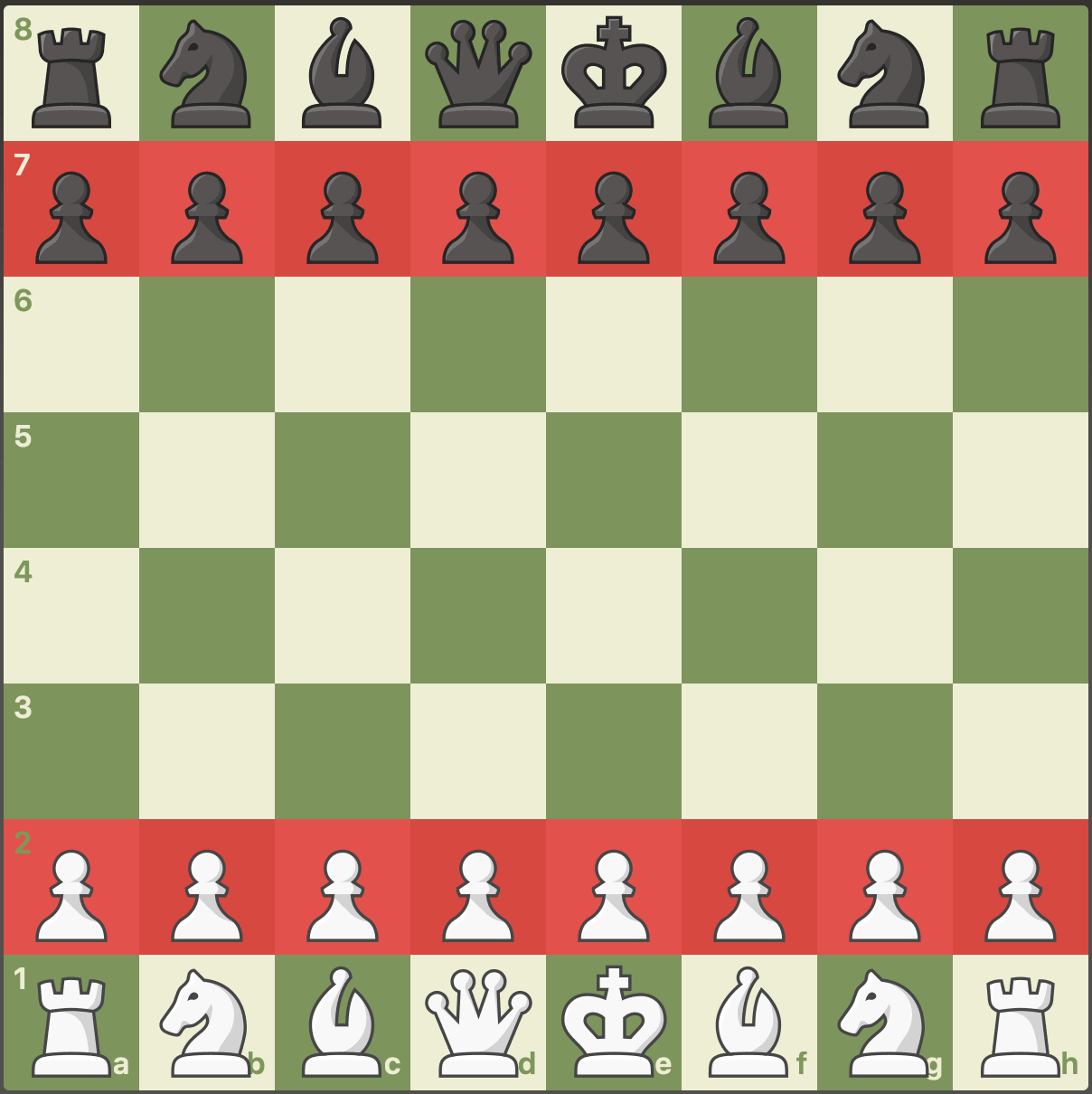Chess Theory
Chess was once seen as a complicated game with a myriad of possibilities branching out from very simple rules. Understanding these rules could dictate the future moves to come, and thus help with the strategy of planning - but it was suggested that each game of chess would be unique and unknowable each time. Then the culture evolved into writing books of predefined outcomes for the game, listing popular starting moves and the optimal moves to take each time, and how to counteract those moves. This is known as playing "by the book", and is why the opening moves for chess championships move so quickly.

Due to years of iteration, study and proliferation through publication, within a human lifetime a player may learn to play chess "by the book". There is no time lost in exploration or the thrill of the game, and thus the player can get to "the end" as soon as possible. Chess is close to becoming a solved game. Naughts and crosses is a solved game - a game where, assuming all players play perfectly, the win and loss is predictable from the start.
With enough data, most games can be completed so quickly to the point that they are no longer worth playing. When the win or loss is immediately visible, there is no value in the experience of the game.
Narrative Theory
Through the ages there have been storytellers, and a fair share of those have formulated narrative structure theory to make storytelling both easier to analyse and to understand. By laying out the rules of the story, it's possible to contrast and compare them against others. Concepts such as genre, characters, themes, symbolism, narrative arcs etc are all fairly well established narrative traits. What makes an action film an action film is generally understood to be by what it contains.
By following simple narrative structure it's possible to make an interesting and engaging film.
By understanding simple narrative structure it's also possible to dissect any entertainment media to read through it to its conclusion. It's possible to recognise every trope, every theme and every genre signature as they happen, and realise it's all been said or done before in a thousand different ways.
Machine learning is reflecting this back at us in novel yet incredibly tired ways. Like this infinite stream of Seinfeld.

The Immortal
The punchline to any story about immortality is the endless, impossible boredom of it all. How everything is somehow still the same yet mildly different, the same stale bread for dinner with a stale spice cupboard to remix for eternity.
Take heaven as depicted in "The Good Place". People trapped in an endless nothing are either too endorphin eroded to do anything, or spend their days prompting a machine for combinations of things to experience before quickly moving on to the next thing.
We are quickly moving towards this "solved game" of culture and entertainment. The solution was once to just import it from overseas - countries traded cultures to add a new flash of life into the mundane, but with global homogenisation there are fewer and fewer places to mine this creativity from. Writers have dried up their inspiration and our media has become formulaic and dull, and the step into machine learning will only exacerbate the issue as it draws from existing media.
Accellerated media consumption is quickly ensuring that we are seeing multiple lifetimes of media in our year. In the 1970s, a person may have seen five new films a year at most. Nowadays it's not impossible for someone to consume a whole film a night.
As we see and consume more and more, there's a casual apathy to being all-knowing of a topic. We already know this story.
There is a solution for the individual - to explore and search for new inputs, to reduce consumption speed and to savour and engage thoughtfully and carefully with anything new. To enjoy the experiences of climbing the hill and not just the standing on the top of it.
This is an obvious, base-level "wake up, sheeple" piece of advice - but even knowing it I can't pull my eyes away from the latest generic mumble of colours flashing before my eyes.
Chess was once seen as a complicated game with a myriad of possibilities branching out from very simple rules. Understanding these rules could dictate the future moves to come, and thus help with the strategy of planning - but it was suggested that each game of chess would be unique and unknowable each time. Then the culture evolved into writing books of predefined outcomes for the game, listing popular starting moves and the optimal moves to take each time, and how to counteract those moves. This is known as playing "by the book", and is why the opening moves for chess championships move so quickly.

Due to years of iteration, study and proliferation through publication, within a human lifetime a player may learn to play chess "by the book". There is no time lost in exploration or the thrill of the game, and thus the player can get to "the end" as soon as possible. Chess is close to becoming a solved game. Naughts and crosses is a solved game - a game where, assuming all players play perfectly, the win and loss is predictable from the start.
With enough data, most games can be completed so quickly to the point that they are no longer worth playing. When the win or loss is immediately visible, there is no value in the experience of the game.
Narrative Theory
Through the ages there have been storytellers, and a fair share of those have formulated narrative structure theory to make storytelling both easier to analyse and to understand. By laying out the rules of the story, it's possible to contrast and compare them against others. Concepts such as genre, characters, themes, symbolism, narrative arcs etc are all fairly well established narrative traits. What makes an action film an action film is generally understood to be by what it contains.
By following simple narrative structure it's possible to make an interesting and engaging film.
By understanding simple narrative structure it's also possible to dissect any entertainment media to read through it to its conclusion. It's possible to recognise every trope, every theme and every genre signature as they happen, and realise it's all been said or done before in a thousand different ways.
Machine learning is reflecting this back at us in novel yet incredibly tired ways. Like this infinite stream of Seinfeld.
The Immortal
The punchline to any story about immortality is the endless, impossible boredom of it all. How everything is somehow still the same yet mildly different, the same stale bread for dinner with a stale spice cupboard to remix for eternity.
Take heaven as depicted in "The Good Place". People trapped in an endless nothing are either too endorphin eroded to do anything, or spend their days prompting a machine for combinations of things to experience before quickly moving on to the next thing.
We are quickly moving towards this "solved game" of culture and entertainment. The solution was once to just import it from overseas - countries traded cultures to add a new flash of life into the mundane, but with global homogenisation there are fewer and fewer places to mine this creativity from. Writers have dried up their inspiration and our media has become formulaic and dull, and the step into machine learning will only exacerbate the issue as it draws from existing media.
Accellerated media consumption is quickly ensuring that we are seeing multiple lifetimes of media in our year. In the 1970s, a person may have seen five new films a year at most. Nowadays it's not impossible for someone to consume a whole film a night.
As we see and consume more and more, there's a casual apathy to being all-knowing of a topic. We already know this story.
There is a solution for the individual - to explore and search for new inputs, to reduce consumption speed and to savour and engage thoughtfully and carefully with anything new. To enjoy the experiences of climbing the hill and not just the standing on the top of it.
This is an obvious, base-level "wake up, sheeple" piece of advice - but even knowing it I can't pull my eyes away from the latest generic mumble of colours flashing before my eyes.
Virtual Cafe Awards









